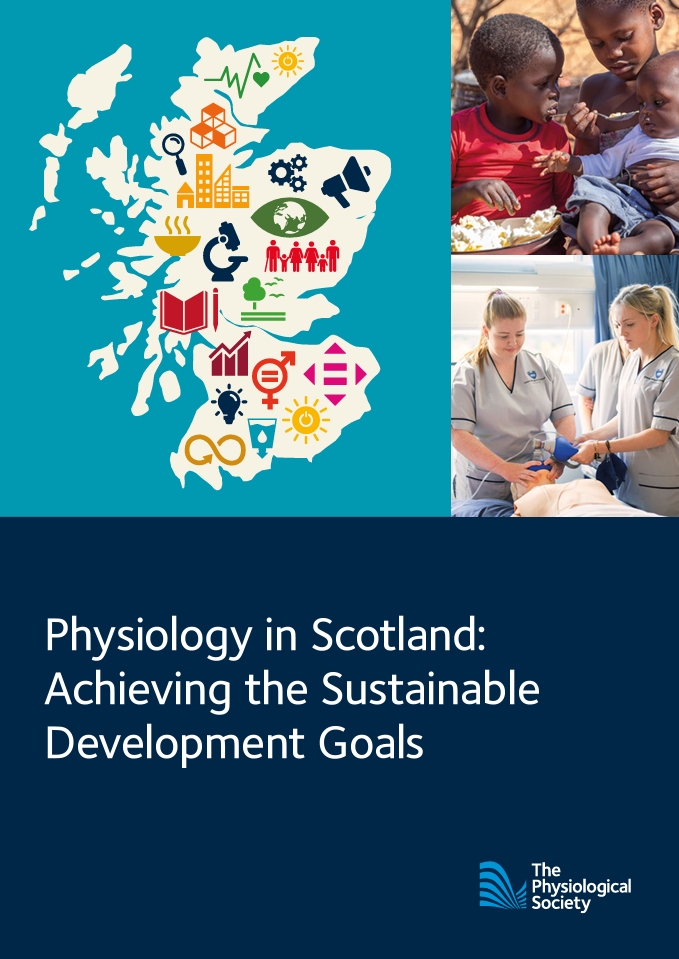Scotland at the Heart of Meeting Global Challenges
Scotland is among the top countries in the world for research productivity and impact, with its 19 universities and higher education institutions, and world leading research centres, staffed by some of the best and brightest scientists from across the world. These scientists collaborate with other researchers to tackle some of the world’s most complex and critical challenges which are characterised through the United Nations Sustainable Development Goals (SDGs).
Over the last decade, a third of Scotland’s research was directly related to the ambitions set out in the Sustainable Development Goals. Scotland is world leading in the physiological sciences, with a proud history of Nobel Prize winners continued today by cutting edge research and teaching.
What are the SDGs?
In September 2015, the General Assembly of the United Nations adopted the 2030 Agenda for Sustainable Development that includes 17 SDGs. Building on the principle of “leaving no one behind”, the SDGs emphasise a holistic approach to achieving sustainable development for all. They combine a number of initiatives targeting the end of poverty and other socio-economic inequalities with objectives relating to improving health and education, while tackling climate change and working to preserve the planet’s oceans, agriculture, wildlife and forests.
What is physiology’s role in supporting the ambitions of the SDGs?
Each SDG has a series of targets totalling 169 individual targets overall. Many of these goals have a direct health target which will be informed by physiological underpinning and research. For example, SDG 11 (Sustainable Cities and Communities) includes targets related to reducing deaths caused by flooding and improving transport systems. The infographic on the following page shows how physiology underpins 10 out of the 17 SDGs.
Thus, physiological research plays a key role in preserving the health of our planet and promoting long-term sustainable development. More information about the SDGs and their targets can be found on the UN’s website: un.org/sustainabledevelopment
How is The Physiological Society supporting Scottish members to promote the impact of their research on meeting the SDGs?
On Wednesday 8 February in the Scottish Parliament, The Physiological Society is collaborating with the Royal Society of Edinburgh to discuss how Scotland’s research environment will be crucial in meeting the SDGs. Physiology, as the science of life, will be a key part in the response to the targets posed by the SDGs.
Our event, kindly hosted by Clare Adamson MSP, brings together Scottish researchers, Members of the Scottish Parliament (MSPs) and policymakers from throughout the country, to celebrate the contribution that Scotland’s higher education institutions have made to meeting the SDGs and outline the major challenges and opportunities yet to be addressed.
How can MSPs support physiological research into the SDGs?
The Physiological Society is asking MSPs to take the following actions
- Support the Scottish Parliament Motion on ‘Scotland at the heart of meeting global challenges’.
- Visit their local research institution to see first-hand the work of physiologists.











